Reviews
Jeff Nichols
USA, 2007
Credits
Review by Tom Huddleston
Posted on 19 October 2007
Source Vertigo Films 35mm print
Categories The Times BFI 51st London Film Festival
The Onion’s AV Club offshoot recently ran a feature listing 10 films which would not have been possible without the influence of Wes Anderson and Rushmore. A shorter but steadily expanding list would be those works impossible without David Gordon Green and George Washington—such a countdown might include Mean Creek, Twelve And Holding, Old Joy and now Shotgun Stories. It’s not that Green invented this sort of lush, lyrical working class American realism - he took his cues from, among others, Terence Malick, Charles Burnett and Errol Morris - but he certainly brought this particular style of cinema into focus for a new generation of filmmakers.
In Shotgun Stories the parallels are clearly pronounced, perhaps because Green himself produced the film, which is directed by young first timer Jeff Nichols. But there’s more story here than in the average indie slice-of-life, and it’s surprisingly gripping. The Hayes family is split in two—three brothers from one mother, four from another. The elder three, now in their mid-20’s, and named Son, Kid and Boy, feel abandoned by their father who, although he later found religion, cleaned up his act and became a proud family man, never returned to his first family, leaving the boys in the care of their bitter, hate filled mother. But when the patriarch dies, oldest child Son feels compelled to make a statement, interrupting the funeral and spitting on the coffin. This provokes a bitter feud between the two factions, which eventually leads to violence and murder.
As with Green’s work, one of the standout aspects here is the photography. Set in the flyblown small town of England, Arkansas, the film luxuriates in a lambent, sunlit depiction of places and people—golden fields of wheat, bug stained windshields on a dusty highway, the sides of clapboard houses glowing in the last light of the setting sun. One particularly memorable image captures Boy fishing at a small lake, the light glittering on the water as he makes Margaritas in a blender hooked up to his car battery.
Such small character touches are all over Shotgun Stories. These are terse, taciturn people, unable to express themselves emotionally—there are as many pursed lips and narrowed eyes here as in any stiff-upper-lipped English wartime romance. They reveal themselves through the small details: Son’s obsessive, self destructive nature is illustrated by his obsession with cards, even though we never actually see him gamble. Boy’s relative innocence comes out through his relationship with his dog, Henry, and the small gang of kids he’s trying to teach basketball. The dialogue is spare and essentially declarative, but there are brief passages of real beauty, such as a bittersweet discussion on the nature of love between Son and Kid—‘you just have to decide you’re going to love someone, and love them. That’s all there is to it.’
All three lead actors acquit themselves superbly. As Son, Michael Shannon looks like he just stepped out of Badlands, all 70’s hair and grim, tightlipped determination. Middle brother Kid is very likeably played by Barlow Jacobs, but it’s newcomer Douglas Ligon as Boy who threatens to steal the show: overweight and cowardly, but forced to carry the full weight of responsibility when both his siblings are put out of action. Every one of the characters feels at home in their world, a part of the landscape, with pensive, weatherbeaten faces to match. The four younger Hayes brothers - particularly acne-scarred teenagers Stephen and John - barely seem like actors at all, but real farm kids, utterly inhabiting the parts they’ve been given.
Shotgun Stories is a beautifully judged film, taking its time to tell a simple, familiar but relevant and deeply poignant story. The pace is precisely maintained, easing us into the characters and the story, hitting dramatic peaks which steadily increase in significance and emotional impact, then taking a step back to examine the consequences of such events. And though it may never scale the expressive, heartbreaking heights of films like Twelve and Holding or All The Real Girls, Shotgun Stories remains a wonderfully affecting character study, and a visually sumptuous cinemagoing experience.
More The Times BFI 51st London Film Festival
-
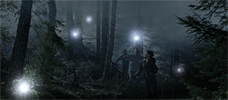
Island of Lost Souls
2007 -

Garage
2007 -
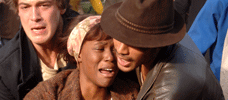
Exodus
2007 -
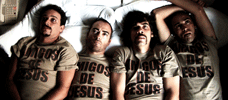
Friends of Jesus
2007 -

We Want Roses Too
2007 -
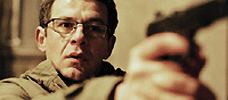
The Trap
2006 -

Captain Ahab
2007 -

Shotgun Stories
2007 -

Savage Grace
2007 -

The Assassination of Jesse James by the Coward Robert Ford
2007 -

The World Unseen
2007 -

Things We Lost In The Fire
2007 -

Lions for Lambs
2007 -

Talk to Me
2007 -

Redacted
2007 -

Battle For Haditha
2007 -

Chaotic Ana
2007 -

Angel
2007 -
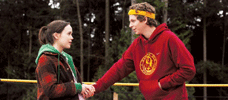
Juno
2007 -

Fay Grim
2006 -

Reservation Road
2007 -
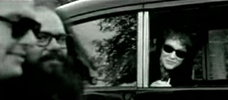
I’m Not There
2007
We don’t do comments anymore, but you may contact us here or find us on Twitter or Facebook.



